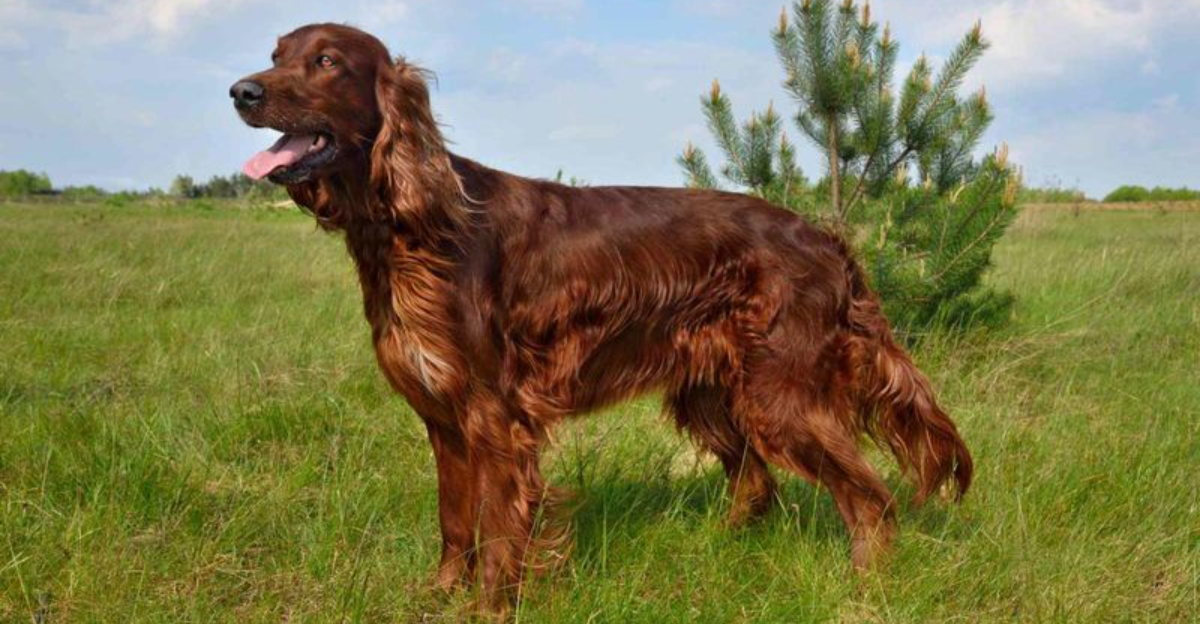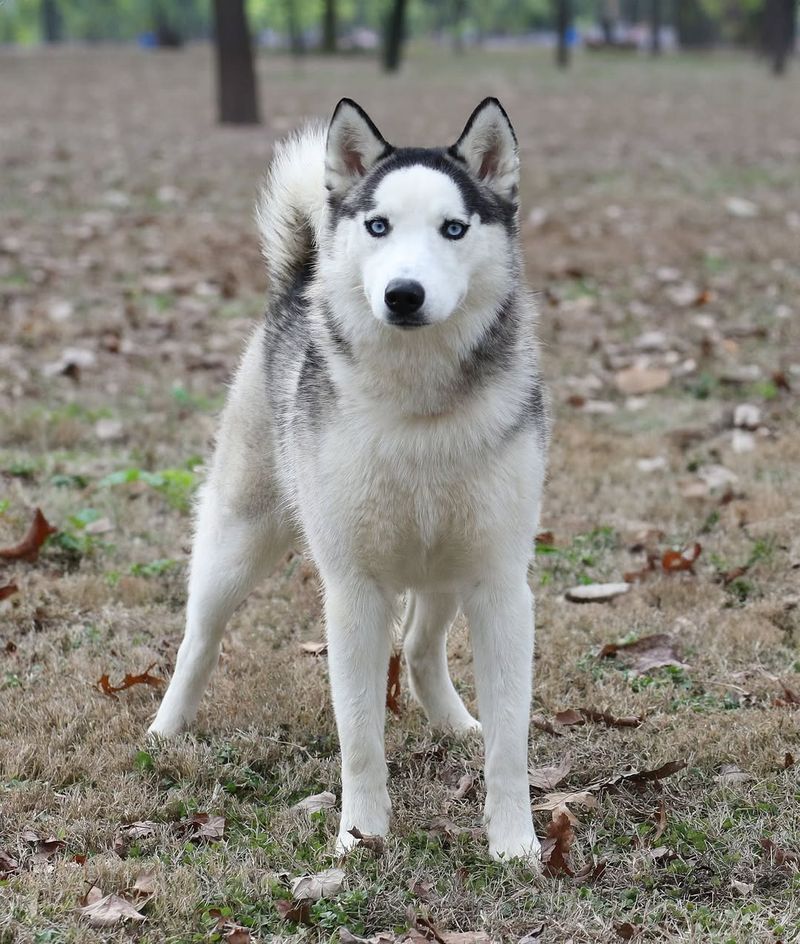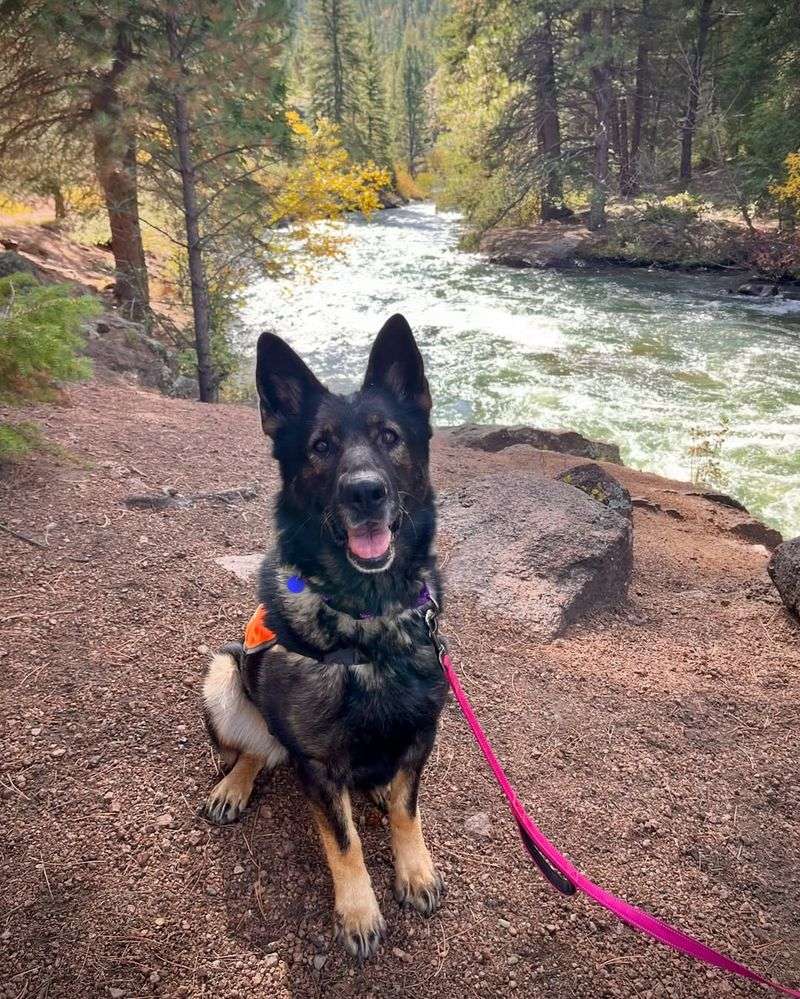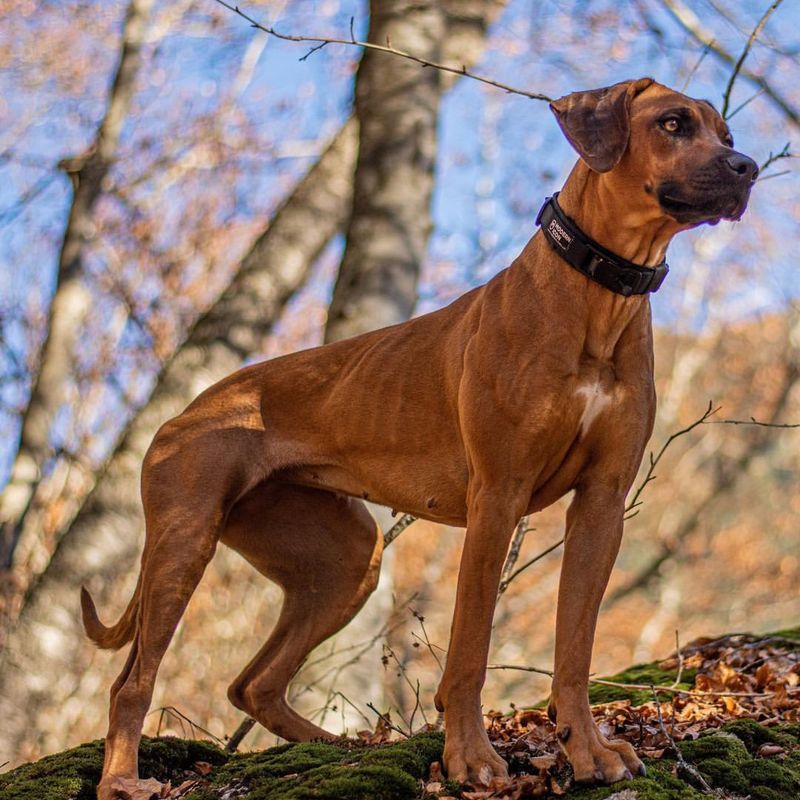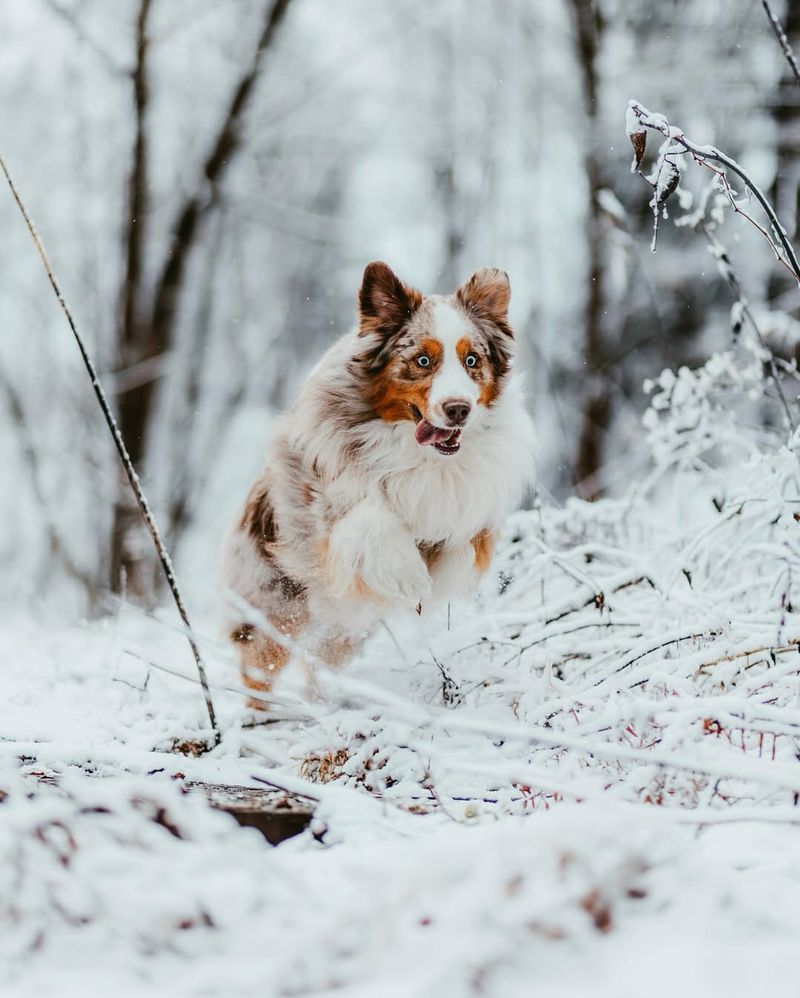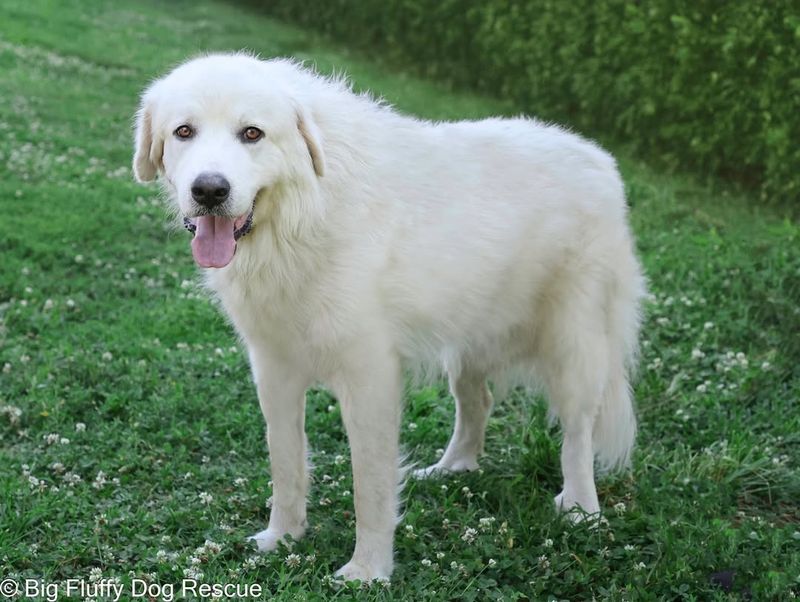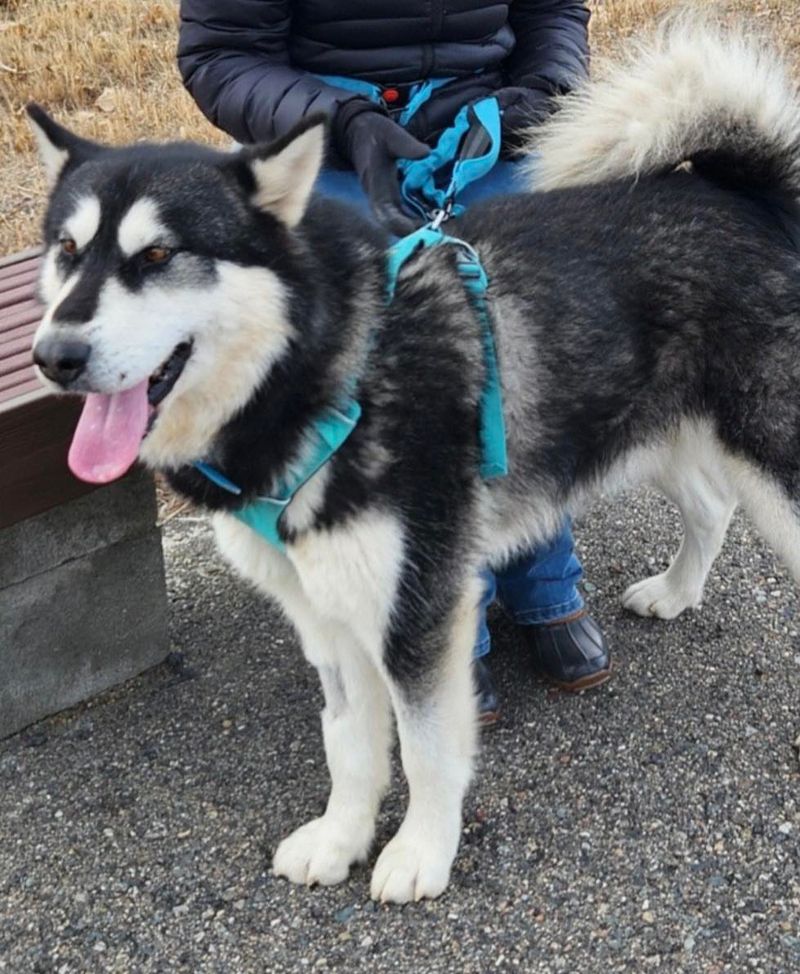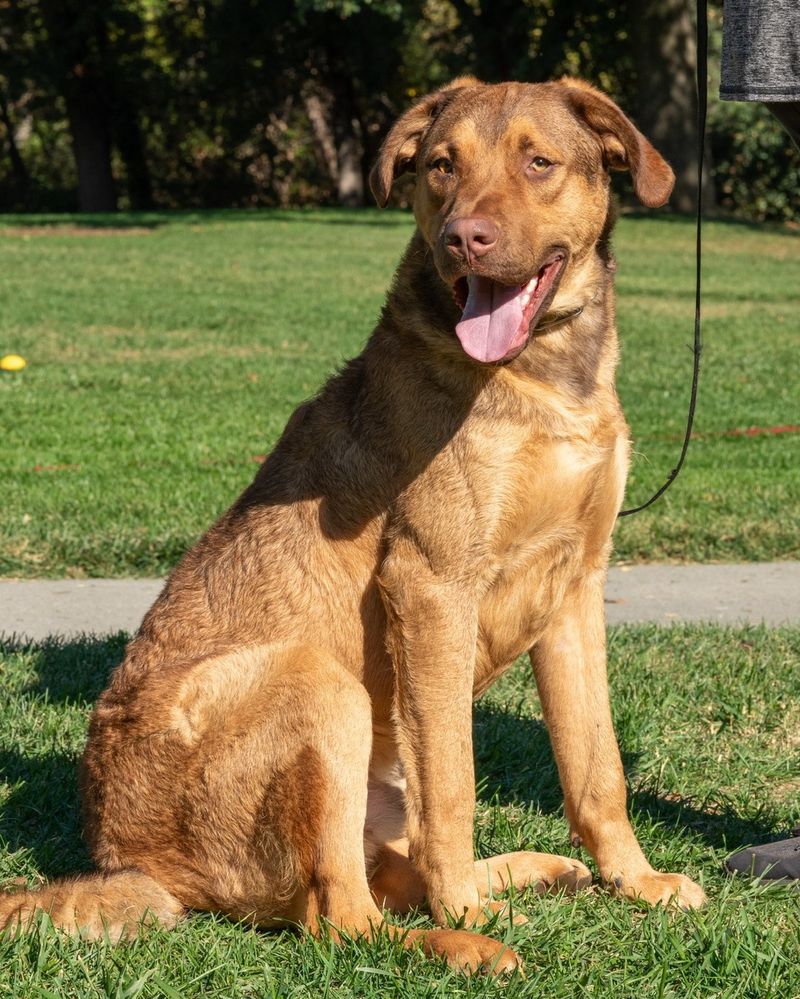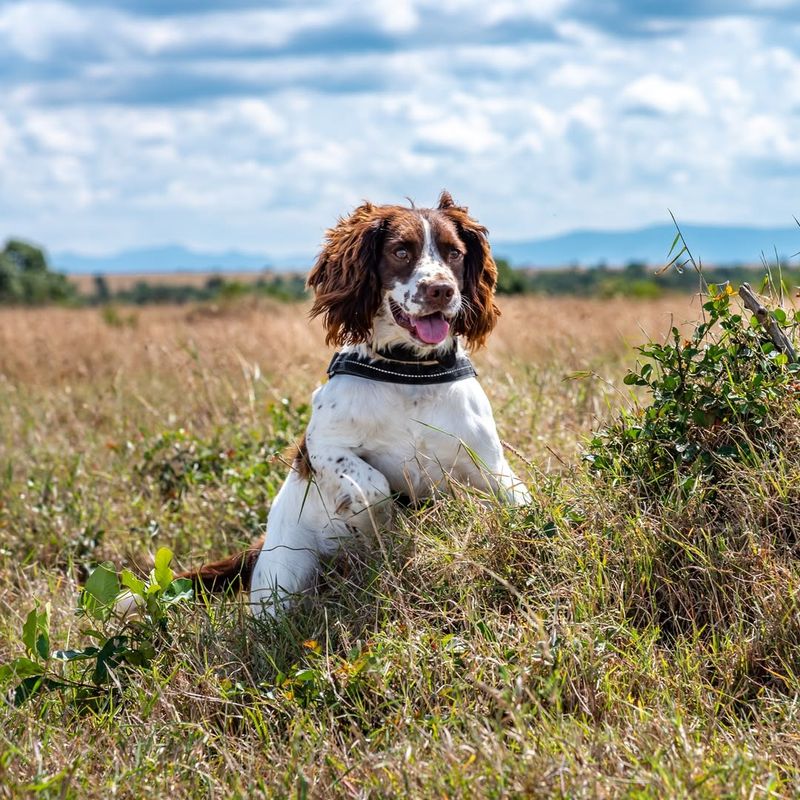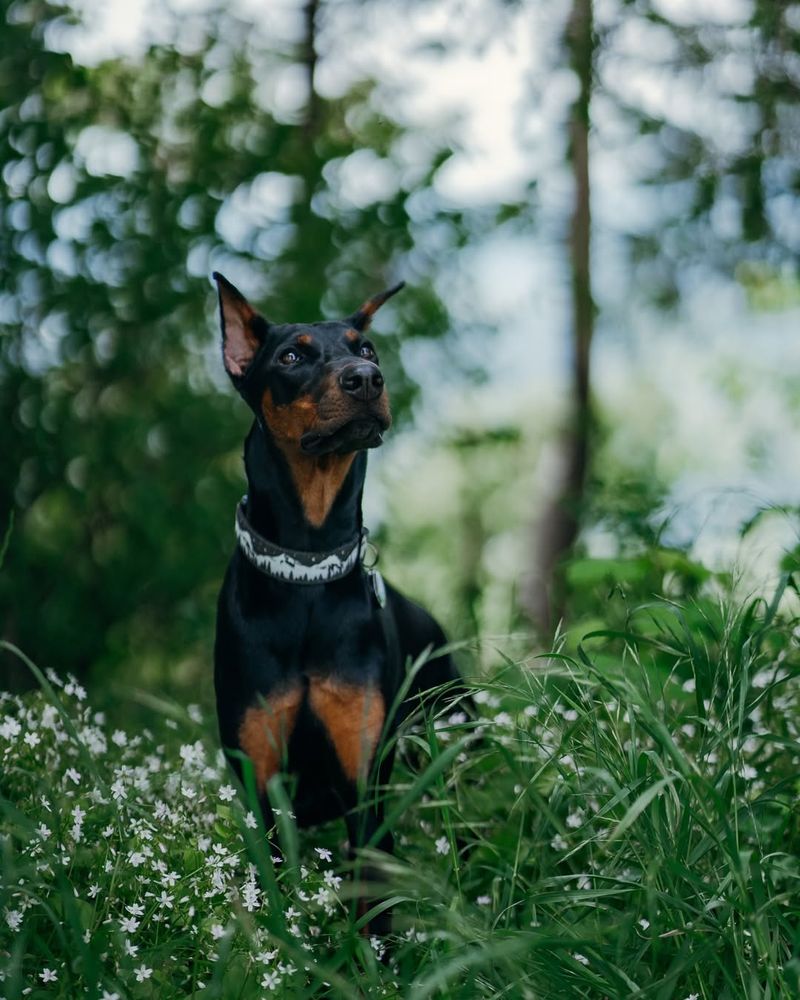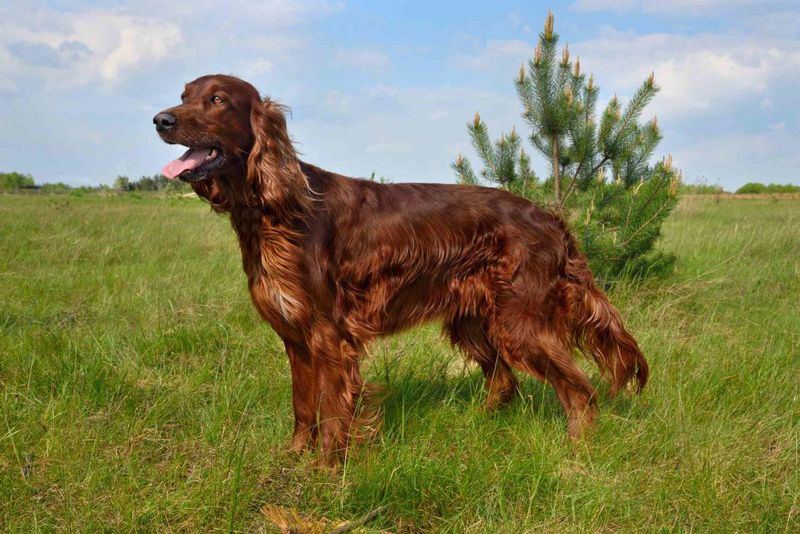Dogs are naturally curious and adventurous creatures. While some breeds are content to stay close to home, others have a powerful wanderlust that can lead them to escape and roam. This article explores 27 dog breeds known for their adventurous spirits and tendency to wander off. Understanding the traits and characteristics that make these breeds prone to escaping can help pet owners take preventative measures and keep their furry friends safe.
Beagle
Beagles are known for their incredible sense of smell and curiosity. These traits make them excellent hunting dogs but also lead them to wander off in search of interesting scents. Beagles possess a strong prey drive, which can cause them to escape in pursuit of rabbits or other small animals. Their independent nature means they often ignore commands, especially when distracted by a captivating scent trail. To keep a Beagle safe, secure fencing and ample exercise are essential. Beagles thrive with mental stimulation, so engaging activities can reduce their desire to roam.
Siberian Husky
Siberian Huskies are renowned for their exceptional endurance and love for exploration. Originally bred for pulling sleds, they have a natural inclination to run and roam. Huskies are escape artists, known for jumping fences or digging under them with ease. Their thick coats make them comfortable in cold climates, encouraging outdoor adventures. Owners should provide secure enclosures and regular exercise to satisfy their energetic nature. Huskies benefit from obedience training, which can help mitigate their wandering tendencies. Keeping them engaged with activities can also prevent boredom-induced escapes.
Jack Russell Terrier
Jack Russell Terriers are small but incredibly spirited dogs. Bred for hunting, they possess a strong prey drive and high energy levels. These traits often lead them to escape in pursuit of small animals or simply out of curiosity. Jack Russells are agile and can easily jump fences or dig under them if not properly secured. Regular exercise and mental stimulation are key to keeping them satisfied and reducing their urge to wander. Training them to obey commands can also help manage their adventurous spirit and keep them close to home.
Border Collie
Border Collies are highly intelligent and energetic dogs, originally bred for herding livestock. Their strong herding instinct and need for mental stimulation can lead them to wander if not properly engaged. They are known for being problem solvers, which can make them adept at finding ways to escape. Border Collies require plenty of exercise and activities that challenge their minds to prevent boredom. A securely fenced yard and regular training sessions can help curb their wandering tendencies. Keeping them busy with tasks replicating herding can also satisfy their instincts.
German Shepherd
German Shepherds are known for their intelligence and versatility. While they are loyal companions, their curiosity and protective nature can lead them to explore beyond their boundaries. They are strong and agile, capable of jumping fences if sufficiently motivated. To prevent wandering, they need consistent training and secure outdoor spaces. German Shepherds thrive on tasks and challenges, so engaging them in activities like obedience or agility training can keep them content. Providing them with a sense of purpose helps satisfy their drive and reduces the likelihood of escapism.
Rhodesian Ridgeback
Rhodesian Ridgebacks possess a strong prey drive and independent nature, traits that can lead them to wander. Originally bred to hunt lions, they are fearless and adventurous. These dogs require secure enclosures to prevent escapes, as their strength allows them to overcome barriers. Regular exercise is crucial to channel their energy positively. Ridgebacks are intelligent and respond well to training, which can help manage their desire to roam. Keeping them engaged with activities that challenge their physical and mental abilities can reduce escapism and keep them safely at home.
Dachshund
Dachshunds are small but determined dogs, originally bred for hunting badgers. Their strong sense of smell and curiosity often lead them to wander in search of interesting scents. These dogs are known for digging, which can be a means of escape if not monitored. To prevent wandering, Dachshunds require secure fencing and regular exercise. Engaging them in activities that challenge their noses and minds can keep them satisfied. Training can also play a crucial role in managing their instincts and ensuring they stay close to home.
Labrador Retriever
Labrador Retrievers are friendly and outgoing dogs with a love for exploration. Their sociable nature can lead them to wander in search of new friends or adventures. Labs are strong swimmers and enjoy water-related activities, which can sometimes lead them away from their owners. Providing regular exercise and engaging activities is essential to keep them happy and reduce their desire to roam. Training them to respond to commands and setting boundaries can help manage their wandering tendencies. Labradors are eager to please, making them responsive to guidance and training efforts.
Australian Shepherd
Australian Shepherds are intelligent, energetic dogs with a strong herding instinct. Their need for mental and physical stimulation can drive them to wander if not properly engaged. Known for their agility, they are capable of escaping fenced areas if not adequately secured. Regular exercise and activities that challenge their minds are vital to prevent boredom-induced roaming. Obedience training can help them respond to commands and stay within boundaries. Providing opportunities for herding-like activities can satisfy their instincts and reduce their desire to explore beyond their home.
Bloodhound
Bloodhounds possess an extraordinary sense of smell, making them exceptional trackers. However, this same skill can lead them to wander in pursuit of an enticing scent trail. Their independent nature means they often focus on the scent rather than responding to commands. Secure enclosures and leashes are crucial to keeping Bloodhounds safe. Regular mental and physical exercise can help satisfy their tracking instincts. Engaging them in scent-based activities can provide the stimulation they need and reduce their desire to roam. Training them to respond to cues can also enhance their safety.
Belgian Malinois
Belgian Malinois are highly intelligent and energetic dogs, often used in police and military work. Their drive and agility make them prone to wandering if not adequately challenged. These dogs require secure environments and regular exercise to prevent escapism. Engaging them in activities like agility training or obedience competitions can satisfy their need for stimulation. Malinois thrive on tasks and challenges, so providing them with purposeful activities can reduce their urge to explore beyond their home. Consistent training and mental engagement are key to managing their adventurous spirit.
Vizsla
Vizslas are known for their boundless energy and affectionate nature. Bred for hunting, they possess a strong prey drive that can lead them to wander. Their need for physical activity means they require regular exercise to prevent boredom-induced escapism. Secure fencing and engaging activities are essential to keep Vizslas content and close to home. Training them to respond to commands can help manage their exploratory tendencies. Keeping them mentally stimulated and involved in family activities provides the social interaction they crave and reduces their desire to roam.
Weimaraner
Weimaraners are energetic and athletic dogs, originally bred for hunting. Their strong prey drive and curiosity can lead them to wander in search of new adventures. These dogs are known for their speed and endurance, making escape easy if fencing is not secure. Regular exercise and activities that challenge their minds are essential to prevent them from becoming restless. Training them with recall commands can help manage their desire to explore. Providing them with tasks that mimic hunting can satisfy their instincts and keep them safely at home.
Shiba Inu
Shiba Inus are independent and spirited dogs, known for their fox-like appearance. Their curiosity and strong prey drive can lead them to wander if not properly monitored. Shibas are skilled at escaping, often finding ways to slip out of enclosures. Secure fencing and regular exercise are crucial to keep them safe. Engaging them in activities that stimulate their minds can help reduce their desire to roam. Training them to respond to commands is important for managing their adventurous spirit. Providing them with companionship and interactive play can also curb their wandering tendencies.
Boxer
Boxers are energetic and playful dogs, known for their boundless enthusiasm. Their curiosity and love for adventure can lead them to wander, especially if they are not properly exercised. Boxers require secure fencing as they are strong jumpers and climbers. To prevent escapism, providing them with regular exercise and engaging activities is essential. Training them to respond to commands can help manage their exploratory nature. Boxers thrive on companionship and interaction, so involving them in family activities can reduce their desire to roam and keep them happily at home.
Basenji
Basenjis are known as the “barkless dogs,” with a unique yodel-like vocalization. Their independent nature and strong prey drive can lead them to wander in pursuit of small animals. Basenjis are skilled escape artists, capable of climbing and jumping fences with ease. Secure enclosures and regular exercise are crucial to keep them safe. Engaging them in activities that challenge their minds can reduce their desire to roam. Training them to obey commands is important for managing their adventurous spirit. Providing them with companionship and interactive play can also help keep them close to home.
Great Pyrenees
Great Pyrenees are gentle giants with a strong protective instinct. Originally bred to guard livestock, they are independent and can wander off to patrol their territory. Their thick coats make them comfortable in cold weather, encouraging outdoor exploration. Secure fencing and regular exercise are essential to prevent wandering. Providing them with companionship and tasks that satisfy their guarding instincts can reduce their desire to roam. Training them to respond to commands is important for managing their exploratory nature. Great Pyrenees thrive in environments where they have a sense of purpose and belonging.
Dalmatian
Dalmatians are known for their energy and love for adventure. Originally bred as carriage dogs, they have a strong desire to explore and can wander if not properly exercised. Dalmatians require secure fencing, as they are capable jumpers and runners. Regular exercise and engaging activities are crucial to keep them satisfied and reduce their urge to roam. Training them to respond to commands can help manage their exploratory tendencies. Providing them with opportunities for social interaction and play can also keep them mentally stimulated and content at home.
Cocker Spaniel
Cocker Spaniels are friendly and affectionate dogs with a curious nature. Their love for exploration can lead them to wander, especially if they catch an interesting scent. Secure fencing and regular exercise are essential to prevent escapism. Engaging them in scent-based activities can satisfy their tracking instincts and reduce their desire to roam. Training them to respond to commands is important for managing their adventurous spirit. Providing them with companionship and interactive play can also keep them happily at home. Cocker Spaniels thrive on social interaction and involvement in family activities.
Poodle
Poodles are highly intelligent and agile dogs, known for their elegance and charm. Their curiosity and energy can lead them to wander if not properly exercised and engaged. Secure enclosures and regular exercise are essential to keep them safe. Engaging them in activities that challenge their minds can reduce their desire to roam. Poodles thrive on training and learning new tricks, which can help manage their exploratory tendencies. Providing them with social interaction and companionship is important for their happiness and contentment. Poodles enjoy being part of family activities and can adapt to various environments.
Rottweiler
Rottweilers are strong and confident dogs with a protective nature. Their curiosity and guarding instincts can lead them to wander if they perceive a threat or interesting activity. Secure fencing and regular exercise are crucial to prevent escapism. Providing them with tasks that satisfy their guarding instincts can reduce their desire to roam. Training them to respond to commands is important for managing their exploratory nature. Rottweilers thrive on companionship and interaction, so involving them in family activities can keep them happily at home. They are loyal and protective, making them excellent family guardians.
Alaskan Malamute
Alaskan Malamutes are strong and independent dogs, originally bred for pulling sleds. Their love for exploration and endurance make them prone to wandering if not properly engaged. Secure enclosures and regular exercise are essential to prevent escapism. Engaging them in activities like sledding or hiking can satisfy their adventurous spirit. Training them to respond to commands and establishing boundaries can help manage their exploratory tendencies. Malamutes thrive in environments where they have a sense of purpose and belonging, and they enjoy being part of family activities.
Chesapeake Bay Retriever
Chesapeake Bay Retrievers are strong and determined dogs, bred for retrieving waterfowl. Their love for water and adventure can lead them to wander if not properly exercised. Secure fencing and regular exercise are crucial to prevent escapism. Engaging them in water-based activities can satisfy their instincts and reduce their desire to roam. Training them to respond to commands is important for managing their exploratory nature. Chesapeake Bay Retrievers thrive on companionship and interaction, so involving them in family activities can keep them happily at home. They are loyal and devoted, making them excellent family companions.
English Springer Spaniel
English Springer Spaniels are energetic and friendly dogs with a love for exploration. Their curiosity and strong scent drive can lead them to wander if not properly engaged. Secure fencing and regular exercise are essential to prevent escapism. Engaging them in scent-based activities can satisfy their tracking instincts and reduce their desire to roam. Training them to respond to commands is important for managing their adventurous spirit. Providing them with companionship and interactive play can also keep them happily at home. Springer Spaniels thrive on social interaction and involvement in family activities.
Airedale Terrier
Airedale Terriers are intelligent and independent dogs, known for their adventurous nature. Their curiosity and strong prey drive can lead them to wander if not properly monitored. Secure fencing and regular exercise are crucial to keep them safe. Engaging them in activities that challenge their minds can reduce their desire to roam. Training them to respond to commands is important for managing their exploratory tendencies. Providing them with companionship and interactive play can also help keep them close to home. Airedale Terriers thrive on tasks and challenges, making them excellent family companions.
Doberman Pinscher
Doberman Pinschers are intelligent and energetic dogs, known for their loyalty and protective nature. Their curiosity and guarding instincts can lead them to wander if not properly engaged. Secure fencing and regular exercise are essential to prevent escapism. Engaging them in activities that satisfy their guarding instincts can reduce their desire to roam. Training them to respond to commands is important for managing their exploratory nature. Dobermans thrive on companionship and interaction, so involving them in family activities can keep them happily at home. They are loyal and protective, making them excellent family guardians.
Irish Setter
Irish Setters are known for their elegance and energy. Their love for exploration and strong prey drive can lead them to wander if not properly exercised. Secure fencing and regular exercise are crucial to prevent escapism. Engaging them in activities that challenge their minds can reduce their desire to roam. Training them to respond to commands is important for managing their exploratory tendencies. Providing them with companionship and interactive play can also keep them happily at home. Irish Setters thrive on social interaction and involvement in family activities, making them excellent family companions.
